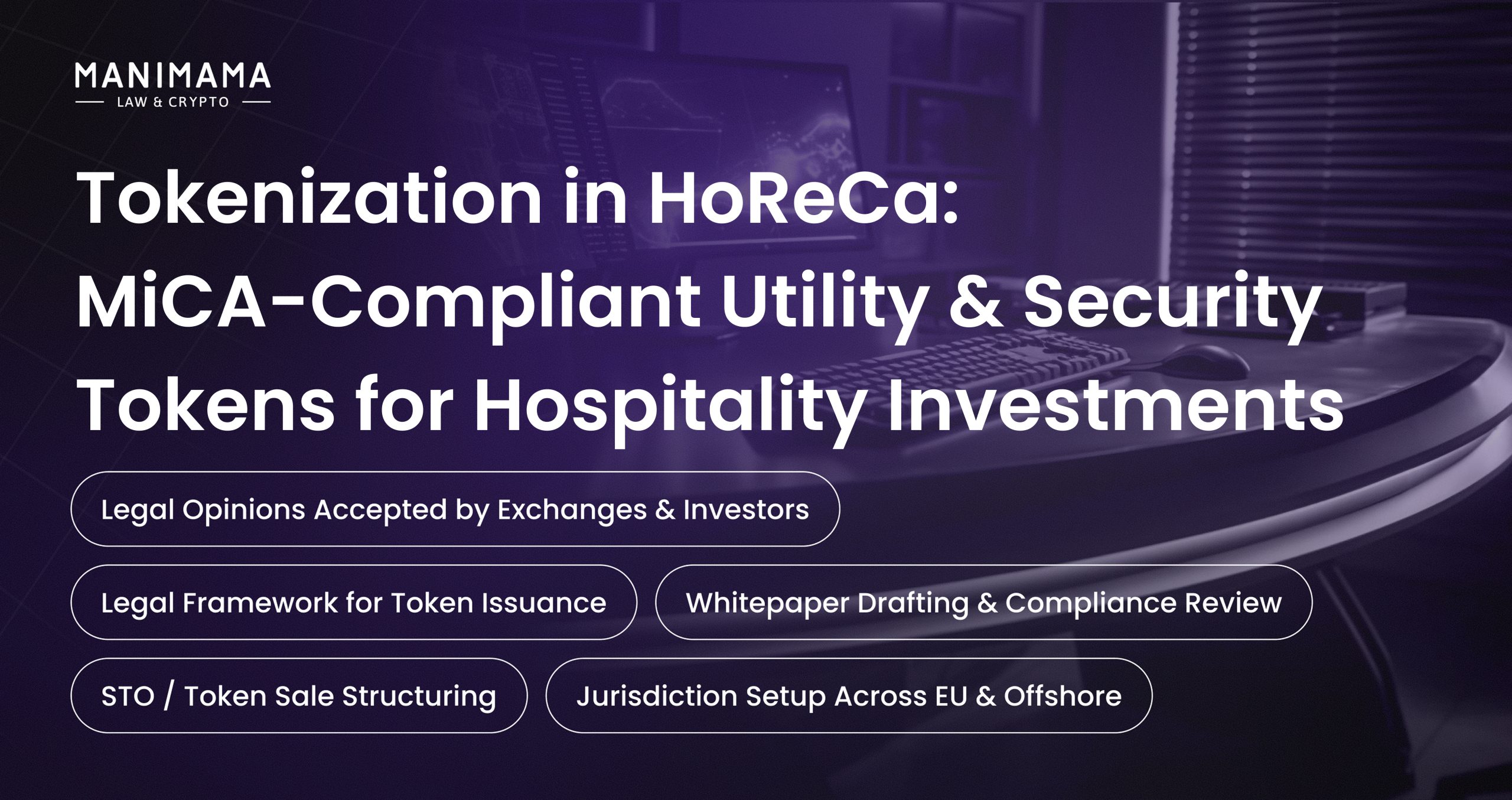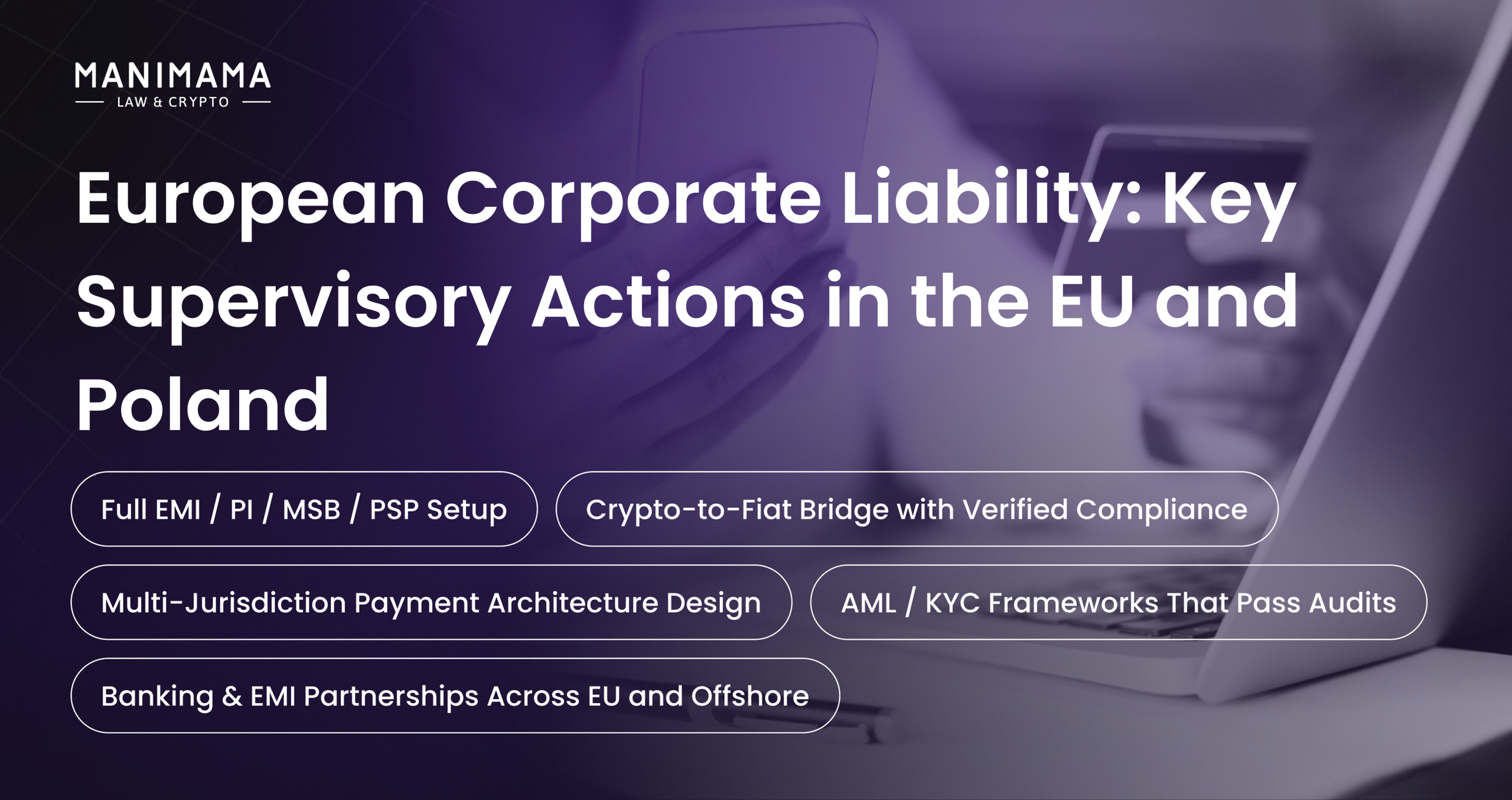Discover how restaurants, cafés, and hotels raise capital through tokenized business investments, security token fundraising, DAO-based structures, and MiCA-compliant token investments. This guide explains how to raise capital for a restaurant through tokenization, how utility and security tokens work in practice, and why this model is rapidly becoming a mainstream tool in hospitality financing.
The restaurant and hospitality industry across Ukraine and Europe is shifting toward modern, flexible financing formats. Banks continue tightening requirements, investors remain cautious, and hospitality businesses often require immediate capital — for renovation, opening a new venue, scaling a chain, refreshing equipment, or building a second location.
In this environment, tokenization has become one of the most effective ways for restaurants and hotels to raise capital. Businesses receive funding upfront, while customers and investors gain digital participation rights or access to services. This model directly supports investment in restaurants through tokens, enabling transparent, low-barrier investor participation.
To implement these models in a compliant and scalable way, companies rely on Manimama, a legal and technical provider specialising in Web3 structuring. Their end-to-end tokenization framework enables businesses to launch MiCA-ready tokens quickly. A detailed overview of their tokenization solutions is available at Manimama’s tokenization services.
There are two main models:
• utility tokens (covered by MiCA),
• security tokens (digital shares or revenue-sharing instruments).
Model №1. Utility Tokens under MiCA: how digital access tokens work in hospitality
Utility tokens provide digital access to a restaurant or hotel’s services — prepaid dinners, accommodation packages, tastings, seasonal passes, VIP access, or priority bookings. This model is often described as “tokenized prepayment”or “blockchain-based loyalty + financing”.
MiCA utility token compliance explained
Under MiCA, utility tokens are regulated crypto-assets that require:
- white paper publication,
- regulator notification,
- proper disclosures,
- compliant tokenomics,
- consumer protection.
For many hospitality founders, this regulatory burden seems overwhelming.
Using a structured service like Manimama’s MiCA utility token framework, restaurants and hotels can launch tokens quickly, with full compliance and minimal internal workload.
How utility tokens help hospitality businesses raise capital
A MiCA-aligned implementation allows a business to:
- avoid CASP licensing (when issuing non-financial utility tokens),
- publish a compliant MiCA white paper,
- notify the regulator,
- issue a technically and legally compliant token,
- include AML/KYC where needed,
- list tokens on exchanges that support MiCA-compliant token investments.
This transforms utility tokens into a reliable structure for tokenized hospitality investments, where customers effectively prepay future services while the business receives capital immediately.
Benefits of utility tokens for restaurants and hotels
Top advantages (Google Featured Snippet format):
- Immediate access to working capital
- No equity dilution
- Customers receive discounted or privileged access
- Tokens are transferable or resellable
- Strong marketing effect through community engagement
This model answers a key question many founders ask:
“How can my restaurant raise capital without selling shares?”
Model №2. Security Tokens via DAO: how restaurants tokenize equity and revenue
If the goal is to raise investment — not sell prepaid services — businesses choose a security token structure. This model is ideal for restaurants and hotels asking:
✔ How to tokenize the equity of a restaurant?
✔ How do hotels use security tokens for investments?
✔ How to structure investor rights on blockchain?
With a compliant DAO-based investment model, built through jurisdictions like Wyoming or the Marshall Islands, security tokens allow investors to hold digital equity or digital revenue-sharing rights.
Why DAO structures simplify security token fundraising
A DAO (Decentralised Autonomous Organisation):
- is recognised as a legal entity,
- encodes investor rights into smart contracts,
- simplifies cross-border investment,
- allows highly structured security token fundraising for restaurants,
- supports SPV-based profit distribution.
What security tokens offer investors
Security tokens act as:
- digital equity,
- revenue-sharing instruments,
- profit-participation rights,
- buyback-eligible assets,
- optionally, governance tools.
This is the foundation of tokenized business investments, enabling global investors to access real hospitality assets.
Best use cases for security tokens in hospitality
Ideal for:
- hotel renovation and expansion,
- café chain scaling,
- restaurant acquisition or refurbishment,
- construction of new venues,
- franchise expansion projects.
This model is perfect for founders needing structured capital beyond customer prepayment.
How Manimama implements utility and security token models
A hospitality business launching a tokenized financing model needs a complete, airtight legal and technical setup.
With providers like Manimama, restaurants and hotels receive:
Utility Tokens (MiCA-Compliant)
- MiCA white paper preparation
- regulator notifications
- Terms & Conditions + disclaimers
- smart contract deployment
- token sale systems
- exchange listing strategy
Security Tokens (DAO-Based)
- DAO formation (Wyoming / Marshall Islands)
- Operating Agreement
- Token Sale Agreement
- Offering Memorandum
- integrated AML/KYC
- smart contracts for equity tokens
- investor dashboards
- complete token sale execution
This end-to-end approach answers a common founder question:
“How do I tokenize my hospitality business safely and legally?”
How to choose the right tokenization model
Choose Utility Tokens if you want to:
- raise capital fast
- avoid equity dilution
- involve customers
- launch a tradable asset
- strengthen loyalty
Choose Security Tokens if you want to:
- raise formal investment
- provide digital equity
- offer revenue-sharing rights
- run buyback mechanisms
- scale using investor capital
Conclusion: why tokenization is the future of HoReCa financing
Tokenization in HoReCa is now a mature, regulated tool with two clear pathways:
- Utility tokens under MiCA — digital service sales + marketing + liquidity
- Security tokens via DAO — investment capital, digital equity, SPV/DAO structuring
Through providers like Manimama, restaurants and hotels can launch:
- tokenized shares of a restaurant,
- tokenized hotel investments,
- blockchain crowdfunding for HoReCa,
- fully structured tokenized hospitality investments for global supporters.
Customers become investors.
Projects scale faster.
Legal frameworks stay compliant.
FAQ: tokenizing restaurants, cafés, and hotels
1. What is hospitality tokenization?
The issuance of digital participation rights — the foundation of tokenized business investments.
2. How does a restaurant raise capital through tokenization?
By evaluating its assets, issuing tokens, and allowing supporters to invest, a modern method of investment in restaurants through tokens.
3. What do investors receive?
Revenue share, buyback profit, capital appreciation, or resale value.
4. Are tokens the same as shares?
Not necessarily — many models issue economic rights only, making them ideal MiCA-compliant token investments.
5. What makes tokenization better than crowdfunding?
Tokens are liquid, tradable, and transferable — enabling true blockchain crowdfunding for HoReCa.
6. Minimum investment?
Often $100 — enabling mass participation.
7. What can be tokenized?
Revenue, equity, SPVs, new locations — most hospitality assets.
8. Is tokenization legal?
Yes, when aligned with MiCA, AML/KYC, and proper documentation.
9. Who benefits?
Restaurants, cafés, bars, hotels, chains, franchises — any business seeking scalable investment.
Our contacts
If you want to become our client or partner, feel free to contact us at support@manimama.eu.
Or use our telegram @ManimamaBot and we will respond to your inquiry.
We also invite you to visit our website: https://manimama.eu/.
Join our Telegram to receive news in a convenient way: Manimama Legal Channel.
The content of this article is intended to provide a general guide to the subject matter, not to be considered as a legal consultation.










